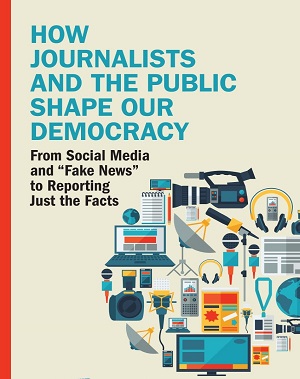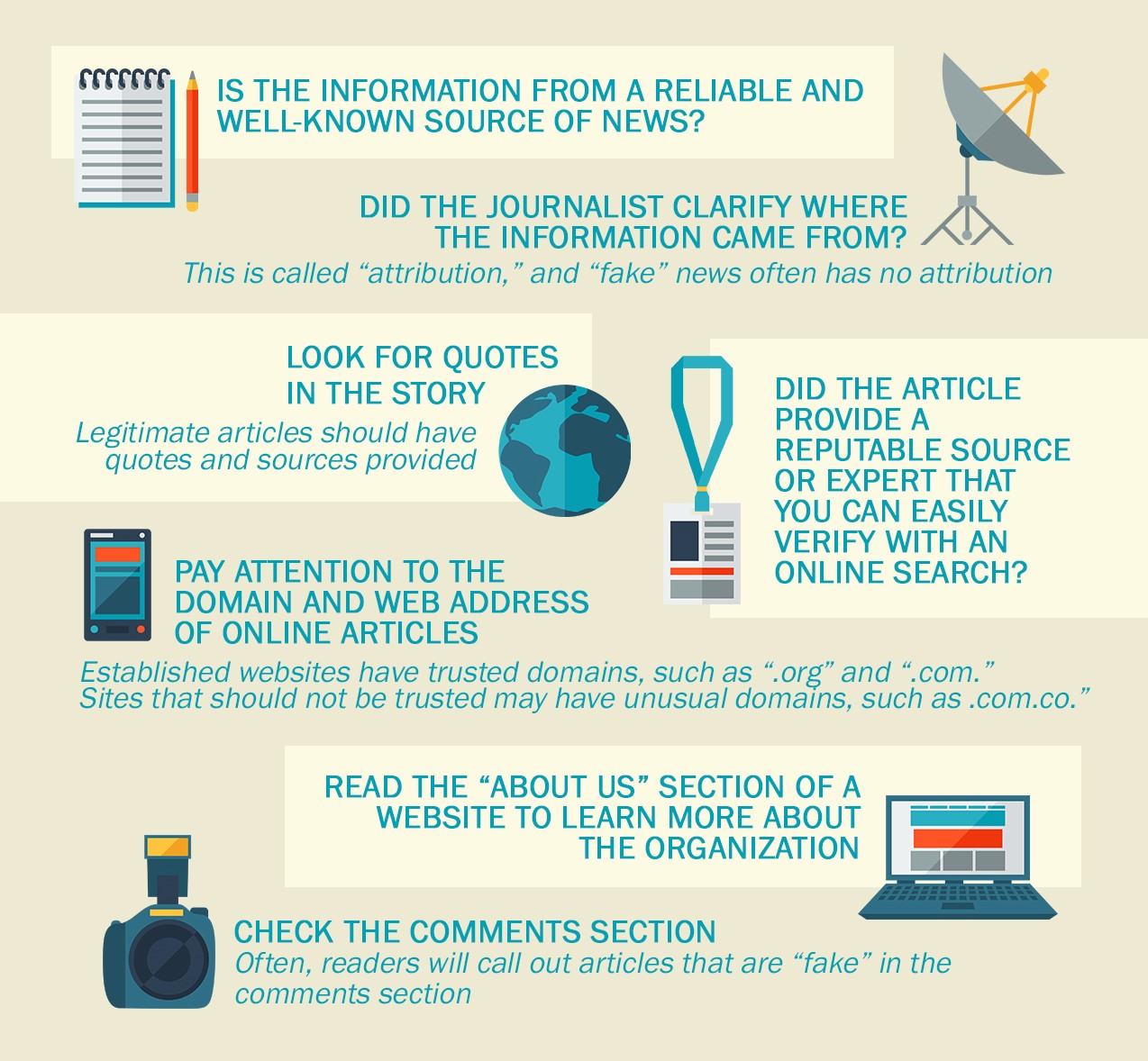Think, Question, and Connect
Each week, we’ll debut curated digital content on a variety of different topics. Every edition will follow a loose theme, featuring articles and content from us and our friends and partners.

Now—and maybe more than in recent memory—journalists are helping to keep us connected as we’re continually encouraged to remain far apart.
We have relied on and continue to rely on journalists, much like we rely on the humanities, to parse a near-constant flow of information, and evaluate it from different perspectives.
Since our nation’s founding, the humanities have been essential for helping citizens understand their history, think creatively, and make reasoned judgments and decisions. Journalists play a vital role in surfacing our previously untold stories and creating a context for understanding them —placing journalism solidly at the heart of the humanities.
At their best, journalists identify issues of concern to communities and provide information to help citizens contextualize them. In the midst of this pandemic, journalists are essential workers, not only seeking the truth and reporting it but critically examining this crisis and its responses, which have reached so many of us on a deeply personal level.
In this special edition of our e-newsletter, we are highlighting ways that journalism moves us and makes us using the 5 W’s—who, what, where, when, and why—and adding in a how, because the humanities perspective demands it.
We’re still here—at least six feet apart and with fewer than six degrees of separation—reminding you that although we may be distanced, we aren’t disconnected.
—Georgia Humanities
Quick Guide
This selection of curated digital content highlights the intimate connections between journalism, the humanities, and our democracy, focusing on the following questions:
Who is there when we can’t be?
What are your sources for news?
Where can we turn to verify or learn more information?
When does journalism play a role in public health?
Why is local journalism important?
How do we move forward?

Covering the role of journalism in our democracy, how the news is researched and reported, and the responsibilities of citizens in an informed democracy, How Journalists and the Public Shape Our Democracy: From Social Media and “Fake” News to Reporting Just the Facts is an indispensable free resource for navigating the news.
Today’s media landscape is marked by the proliferation of information, the consolidation of news outlets, and the disappearance of many local media sources. How have such changes affected our ability to access information, assess its credibility, and analyze its significance?
Published in partnership with the University of Georgia’s Grady College of Journalism and the Atlanta Press Club, this media literacy guidebook tackles such questions and explores the essential role that the humanities and journalism play in creating an informed citizenry, and in turn, a healthy democracy.
The guidebook’s debut was accompanied by a series of public programs in DeKalb, Fulton, and Gwinnett counties and on St. Simons Island that engaged public audiences in panel discussions with journalists. Held at public libraries—institutions central to civic life—these discussions aimed to increase media literacy by examining topics covered in the guidebook.
The Democracy and the Informed Citizen initiative programs, made possible by a grant from the Andrew W. Mellon Foundation, will continue through 2020–21. Stay tuned for more details.

A new documentary exploring misinformation
Connecticut Public, supported by our friends at Connecticut Humanities, created the documentary Fake: Searching for Truth in the Age of Misinformation, which was recently released.
The documentary tackles how and why misinformation spreads, in addition to addressing how to be a smarter information consumer in our increasingly digital world. Featuring informed perspectives from scholars, journalists, and researchers, the documentary highlights why media literacy—the ability to access, analyze, evaluate, and create media in its various forms—is now more important than ever.
Disinformation isn’t new. What the humanities teach us, especially critical-thinking skills, is crucial to dissecting the news and evaluating its content, informed by our understanding of the principles of journalism.
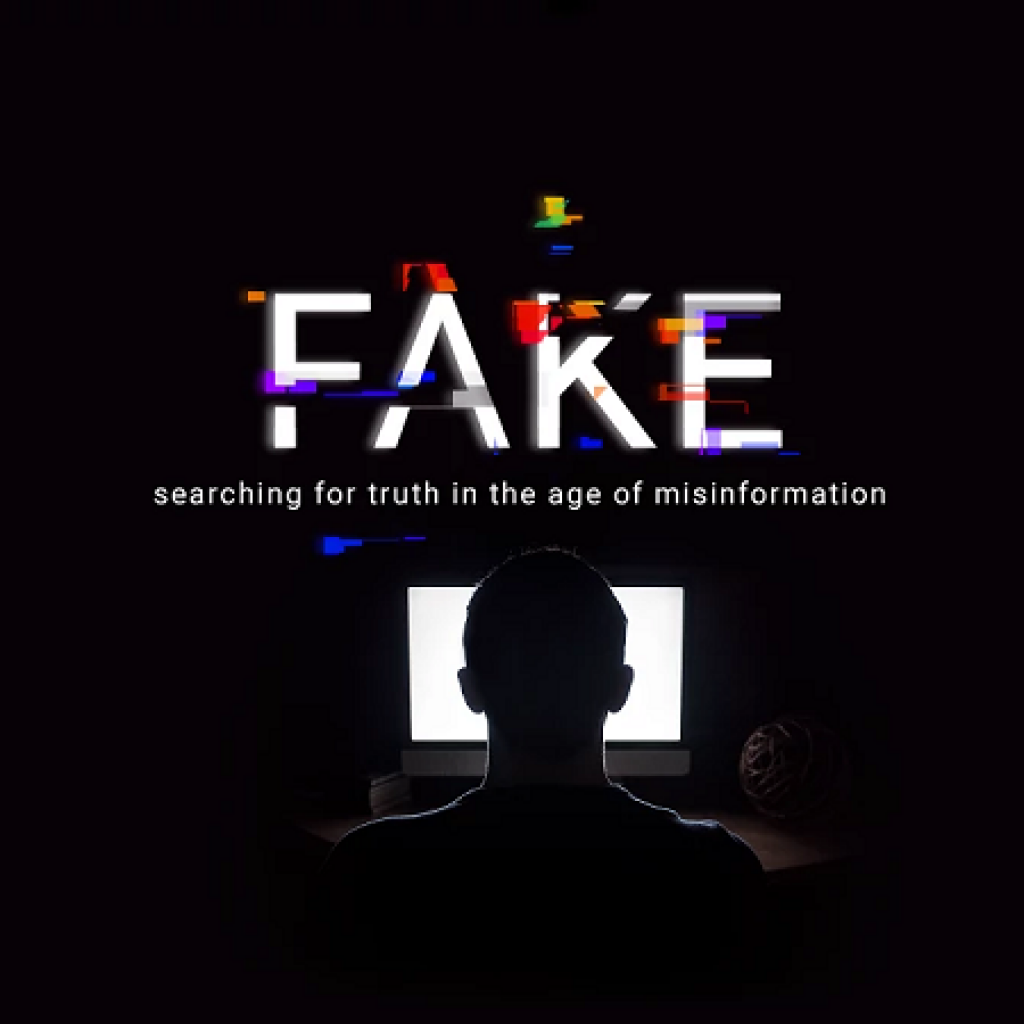

As a consumer of the news, if something you read or hear doesn’t sit right, there are multiple sites you can visit to check the facts.
Center for Responsive Politics | OpenSecrets.org
FactCheck | FactCheck.org
Politifact | Politifact.com or Politifact.com/Georgia
Snopes | Snopes.com
You can also investigate the authenticity of images through reverse image searches.
TinEye | TinEye.com
Google Images | Images.Google.com
Our Media Literacy Quick Guide offers valuable information, and you can also access the Poynter Institute’s MediaWise resources.

More than 100 years ago, the United States was also in the crosshairs of a pandemic that didn’t recognize borders and that was taking lives—the Spanish flu.
The world was a much different place, but then, as now, Georgia’s journalists reported on the pandemic and broke down the information that local citizens, leaders, and communities needed in order to make informed decisions about their lives.
The Spanish flu’s media coverage, a snapshot of which is featured above, included a Q&A with then-Surgeon General Rupert Blue of the U.S. Public Health Service. It was printed in the October 17, 1918, edition of Georgia’s Bainbridge Post-Search Light (which traces its origins to 1907), a local paper still published as the Post-Searchlight in Decatur County today.
The Q&A, titled “Uncle Sam’s Advice on Flu,” posed questions about the Spanish flu that many journalists are tackling today in the COVID-19 pandemic: What is the course of the disease? What causes the disease and how is it spread? What should be done by those who catch it?
Journalists face unique challenges when reporting on public health emergencies and major disease outbreaks, according to Glen Nowak, professor and director of the Center for Health and Risk Communication in the Grady College of Journalism and Mass Communication at the University of Georgia.
Most individuals have limited knowledge on the intricacies of infectious diseases, especially those that are new, which puts a heightened responsibility on journalists to translate public health jargon into the easily understood information that people need to know.
Local journalists and news outlets, like the Post-Searchlight in Bainbridge, continue to provide information to their local communities by surfacing stories about the impact of COVID-19, from actions that local governments are taking to slow the spread, to how to participate in Georgia’s elections in the midst of a public health crisis.
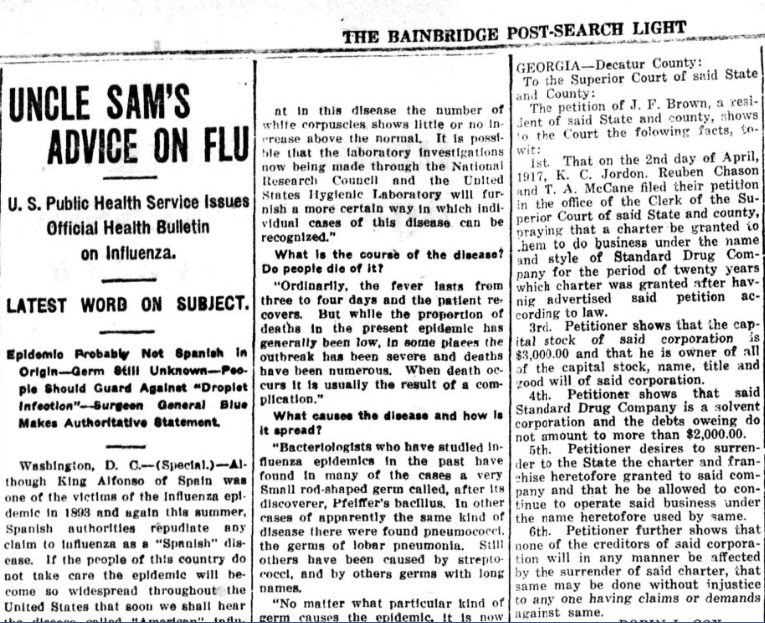
“Not only are major and local news media outlets covering the story, many are also producing and promoting very helpful and easy-to-understand COVID-19 resources that are updated regularly and that are linked to CDC and other official sources. These include local actions as well as answers to frequently asked COVID-19 questions. As a result, it is easy for people who want more information to find and get it from a variety of places. Most news media have also taken down paywalls to make it possible to access the latest COVID-19 news for free.”
—Glen Nowak, in an interview with UGA Today
Below are just a few examples of stories and editorials shared by local news outlets around the state:
Confused about changes to elections? Answers to questions about voting in Columbus| Columbus Ledger-Enquirer
Augusta hospitals see consistent new numbers of COVID-19 patients but warn pandemic is not leveling off | Augusta Chronicle
Global health crisis coordination center gets launched in Atlanta | SaportaReport
Locals come together to support health workers and Bainbridge restaurant industry | Post-Searchlight
If Macon sees surge of COVID-19 patients, state has a plan: A shipping container ‘hospital’ | Macon Telegraph
Savannah hospitals’ finances strained by COVID-19 | Savannah Morning News
To our readers: When you’re on your own, we’re there with you | Albany Herald
Atlanta Press Club Loudermilk-Young Debate Series Hosts Primary Election Debates | Atlanta Press Club

“One of the newspaper’s jobs obviously is to dispense information, but another thing that’s very important that we dispense is hope. We’ve got to encourage our communities to keep their faith, keep their courage, keep their compassion, be cooperative and be determined because we will get to the other side.”
—Dink NeSmith, president of Community Newspapers, Inc., quoted in the Georgia Recorder
In an age where information about nearly any topic is at our fingertips, it’s often easy to forget that behind every article we read is a journalist who has spent the time researching, vetting, and synthesizing the information for the benefit of the public. Do you know where you would go for information and context about your community if your local paper didn’t exist?
According to the Expanding News Desert project from the University of North Carolina’s Hussman School of Journalism and Media, there are 28 counties in Georgia without a newspaper, and 112 counties with just a single newspaper. Georgia now has 45 fewer newspapers than it did in 2004 (there are currently 166 statewide), marking a decrease of 21% compared with the 211 newspapers in the state just 16 years ago.
According to a series of surveys from the Knight Foundation and Gallup, Americans are paying greater attention to the news now than they have throughout the last three years. Americans’ attention to local news has nearly doubled from this same period in 2018, while attention to national news has hovered at similar levels of interest, as readers yearn for more information about the coronavirus.
Jill Nolan of the Georgia Recorder notes that many local news outlets across the state are facing deeper financial uncertainty even as communities lean on them more heavily for information about COVID-19 and its impacts. Many local media outlets have seen a drop in revenue as retailers, a significant source of advertisement income, are cutting back on advertising dollars as they too feel the economic pinch of the pandemic. Some outlets have resorted to layoffs or furloughs as a means to make ends meet. (For a broader context of challenges faced by local journalists across the country, see this article from the Brookings Institution.)
Despite these challenges, Georgia’s local media outlets continue reporting and uncovering information that affects their communities on a personal level.

Long before the words COVID-19 were ever written or spoken, Georgia’s local media outlets were reporting on stories that impacted the health and well-being of their communities. One such media outlet is the Press-Sentinel in Jesup, a Wayne County town of about 10,000 residents in southeast Georgia.
In 2016, part-time reporter Derby Waters learned that a subsidiary of Republic Services (a large, national waste management company) had applied for an Army Corps of Engineers permit to develop 25 acres near its 270-acre landfill in the county. Republic wanted to build a rail yard which could ultimately dump 10,000 tons of coal ash and other non-hazardous waste into the landfill per day.
The Press-Sentinel ran a story with the headline, “Company Plans to Bring Coal Ash, Other Waste Here,” which referenced the project’s potential environmental and health dangers. The paper began covering the issue with multiple news articles, columns, and editorials reporting Republic’s plans and the potential effects on the community.
Letters to the editor were written by concerned citizens, commission meetings started to see increased attendance, and a Facebook group was even created. In April 2017, Republic withdrew its permit application.
What started as one journalist paying attention on behalf of the community became an issue that inspired community-wide civic engagement. (Read more in our media literacy guidebook.)

How can you support local journalism and its role in our democracy and be an informed citizen? Here are a few ideas.

Show your support and subscribe
If you can, financially supporting your local media outlets through paid subscriptions goes a long way in supporting journalism. If you’re a business owner, consider placing an ad with your local newspaper or broadcast media outlet featuring the services your company provides.
Use your social media to elevate local stories
Use your social media platforms to share articles and content covered by local media outlets. As technology changes, more and more people are exposed to the news from their social media feeds. Your post might be the way someone discovers a new source, or learns something new about their community.
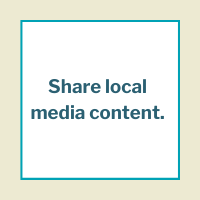

A variety of viewpoints is key
It’s important to consume the news through a variety of different sources, even if you disagree with them. The humanities are grounded in the importance of examining the issues that affect our lives from a well-rounded perspective. It is only fair that we inform ourselves of the news in a similar fashion.
News we can use
Journalists spend their careers elevating issues that directly affect our lives to the public consciousness so that we have the information we need to make informed decisions. It’s up to us what we choose to do with that crucial information—knowledge is power.
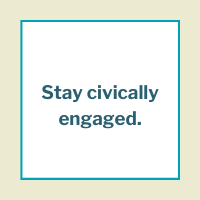
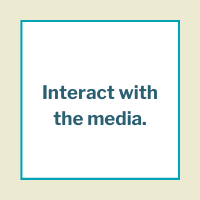
Keep each other accountable
If you read an article that doesn’t sit right, write a letter to the editor. If you find an error, do the same, and provide the source of your new information. Reputable news outlets will issue corrections when necessary—so speak up if you spot a necessary correction!
Check back each week for the latest edition of curated digital content, or subscribe to our newsletter below.

